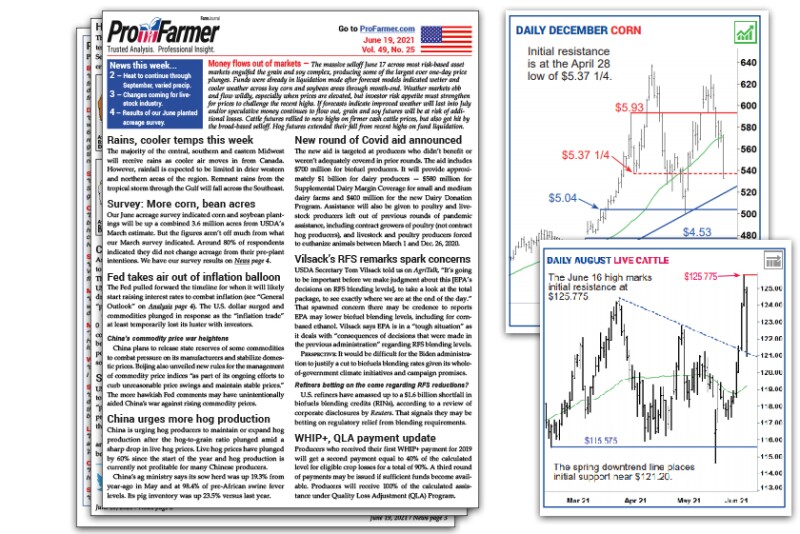Record-low water levels at some locations along the lower Mississippi River have caused rippled effects in the grain industry. With barge tows greatly reduced, exporters are moving more soybeans out through the Pacific Northwest. Increased volumes of soybeans leaving via the PNW will lower corn and wheat shipments from those ports. Based on the National Weather Service outlook, there’s little hope for significant rains to improve water levels on the lower Mississippi River over the next three months. There’s also little hope for significant improvement in moisture conditions for the U.S. winter wheat crop. With the drought footprint now covering 70% of winter wheat areas, there are concerns about the condition of the crop when it enters dormancy during winter. The growing season in Brazil is off to a favorable start, while Argentina is suffering from drought, which is reducing the wheat crop and hindering corn and soybean planting. Meanwhile, the deadline on the deal allowing Ukrainian grain exports via the Black Sea is less than a month away and talks to extend it have produced few results. The current farm bill doesn’t expire until Sept. 30, 2023, but we look ahead to key issues when discussions get underway for new legislation early next year. We cover all these items and much more in this week’s newsletter, which you can download here.
Your Pro Farmer newsletter (October 22, 2022) is now available
Access this week’s newsletter here.

